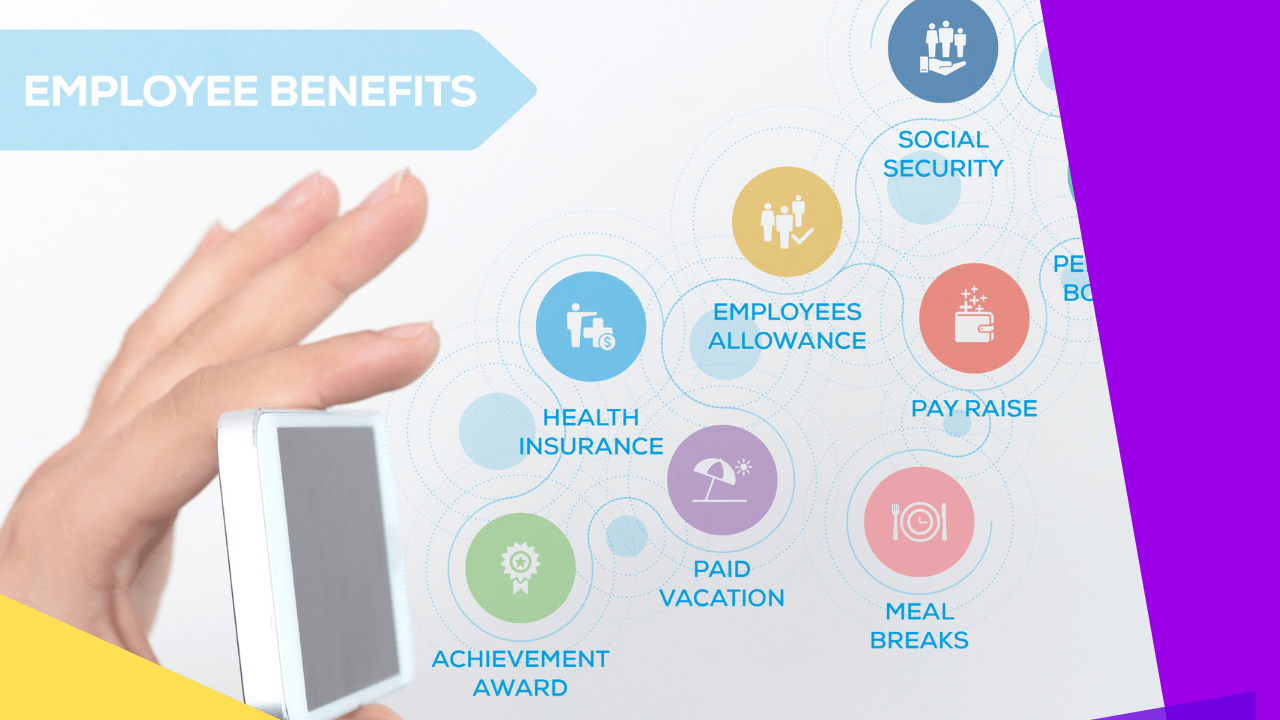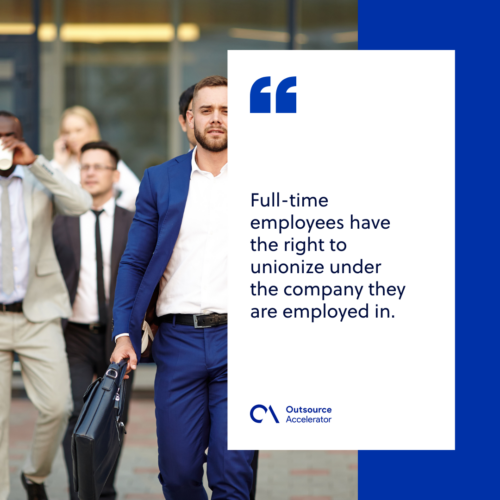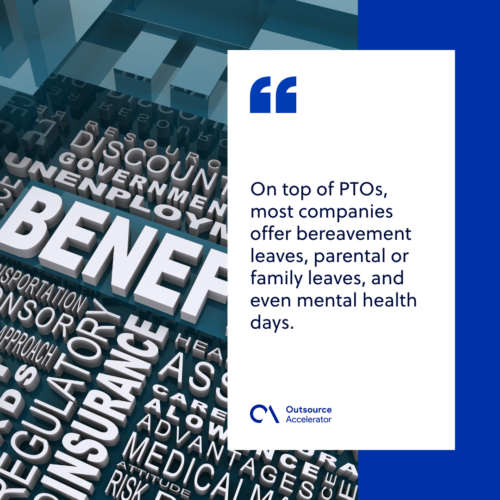Full-time employee rights you should know in 2025

Full-time employee rights can be found in every legally operated company in the entire world. With many still suggesting ideas and concepts that would make it better and more inclusive, full-time employee rights is an ever-evolving topic.
Know the full-time employee rights you should be aware of on our list below.
What is a full-time employee?
A full-time employee or worker is someone who renders 30 to 40 hours of work each week, be it in the course of five days or less.
Many people are leaning toward the new concept of a four-day workweek, which is composed of four 10-hour days and three weekends. It is not yet widely implemented; however, more and more companies in different countries have adopted this movement.
10 full-time employee rights you should know
Full-time employees have rights to fair employment, livable wages, and a safe working environment, among others. These are non-negotiable and are important to any organization that aims to expand its workforce.
Here are the 10 full-time employee rights everyone should have, and companies operating without regard for them can be held liable.
Rest between shifts
If an employee renders the prescribed working hours in a day, then they are entitled to having their personal time beyond their workday.
However, due to remote working, some employees tend to render more hours than necessary. While this is not illegal, it weakens the boundary between personal life and professional life, which can affect the worker’s welfare.
Equal work opportunity
Equal employment opportunity (EEO) is a government mandate that requires employers not to discriminate against employees and job candidates. Those that have biases and prejudice against employees are opening themselves up for a life of lawsuits.
Full-time employees have rights that protect them from harmful and outright hostile work environments.

Living wage (minimum wage)
While the minimum wage varies from place to place, it’s important for employers to pay their employees a livable wage. Furthermore, some companies practice annual appraisals to allow their full-time employees to keep up with inflation.
Unionization and self-organization
The process of workers forming a labor group to represent the workforce as a whole is called unionization. Full-time employees have the right to unionize under the company they are employed in.
With this, the labor force can ask for better wages, working conditions, benefits, and more.

Government-mandated benefits
Governments of different countries mandate certain benefits and contributions to safeguard employees’ health, welfare, and future. These may vary, but social security, healthcare, and insurance are some basic requirements.
For instance, Philippine government-mandated benefits include contributions to the Social Security System, Home Development Mutual Fund, and Philippine Health Insurance.
Likewise, in the US, mandatory contributions include Social Security and Medicare.
Job security
Every full-time employee has the right to keep their role unless retrenched, fired, or promoted.
In some countries, contractualization is still an issue when it comes to gainful employment. A contractual employee doesn’t get benefits, and most of the time, job orders only last six months or less.
Safe working conditions
When COVID-19 struck the world, the government required every employer to disinfect common areas, operate with a skeletal workforce, and practice minimum health protocols.
In high-risk jobs, this also includes proper maintenance of machinery and tools, cleanliness of the production area, and supply of protective equipment.
Paid leaves
Every worker is entitled to have paid time-offs (PTO) to use for personal reasons. On top of PTOs, most companies offer bereavement leaves, parental or family leaves, and even mental health days.

Due process
If the time comes that a worker needs to be fired or terminated, they still have the right to due process. All processes regarding their termination should be done by the human resources department with proper documentation.
Employment of individuals under 18
Full-time workers under 18 years old are also entitled to benefits and rights, given that the nature of their work isn’t hazardous and won’t derail their development.
For most countries, the minimum age requirement to work is 16 years old. Anyone younger than that needs their parents’ or guardians’ explicit permission.
3 benefits of hiring a full-time employee
Employing workers is a natural process for businesses that are looking to grow. While some companies have been more open to freelancers and independent contractors, many still prefer full-time employees for these reasons:
Cybersecurity
Full-time workers are more likely to observe cybersecurity protocols developed and implemented by the company. Unlike freelancers, full-time staff is subject to stricter rules and monitoring, which entail heavy penalties.
Loyalty
With good benefits, competitive compensation, and employee-centric ideals, workers are much more likely to stay long in a company. Full-time employee rights lessen job insecurity leading to less job-hopping.
Cost-effectiveness
Sometimes, it’s better to hire permanent internal workers to focus on core tasks. If the company has a smooth onboarding process and great learning and development plans for the new hires, then the time and effort invested in training will pay off in the long run.
Working full-time while at home
Even when working remotely and at home, these rights and privileges are still in motion, as long as one is legally employed by a company.
If and when the worker feels like the company is lacking in providing these rights, then they can file a complaint with their human resources department. If the situation gets worse, then going straight to the department of labor should be the next step.







 Independent
Independent




